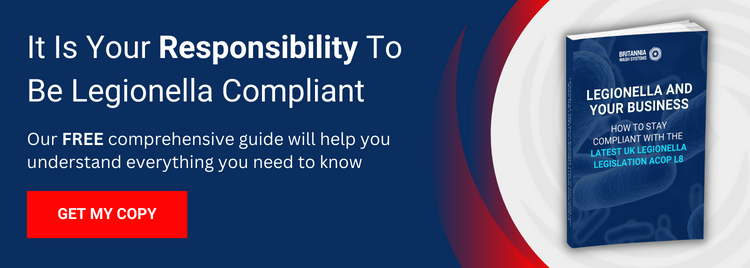
Legionella Risk Assessment: Importance, Frequency, Legal Implications
Legionella risk assessments are the cornerstone of any Legionella prevention and management strategy, and are also a legal requirement in the UK for all commercial and public organisations, under the HSE’s ACOP L8 guidelines. In this article, we’ll look at why regular Legionella risk assessments are important, how often they should be conducted, and their legal implications.
1. Why Are Legionella Risk Assessments Important?
Comprehensive Legionella risk assessments are a pivotal component of controlling and mitigating the latent danger of Legionella bacteria in water systems. Legionella is a naturally occurring waterborne microorganism that is relatively harmless in low concentrations in open water sources. You are unlikely to become ill, for instance, by swallowing Legionella bacteria suspended in a natural water source (although there are plenty of other things in that water that may make you sick, so we don’t recommend it!). However, in closed water systems in commercial and public premises, Legionella can quickly proliferate to harmful concentrations, posing a severe health risk to employees, customers, and the general public.
So a Legionella risk assessment plays several vital roles, including – first and foremost – identifying potential health hazards, as well as providing a blueprint for implementing preventative measures, demonstrating legal compliance, and ultimately protecting public health.
2. What Health Conditions Are Caused By Legionella Bacteria?
Legionella bacteria is spread through aerosolised water droplets. If contaminated particles are breathed in and ingested into the lungs, they can replicate and cause one of two illnesses. The first is Pontiac Fever, which is a mild flu-like illness that, although unpleasant, does not pose a grave health risk. The second, which has far more serious implications, is Legionnaires Disease, which is a form of bacterial pneumonia that can lead to severe complications and, in some vulnerable individuals, can be life-threatening. Conducting a thorough Legionella risk assessment is a crucial first step in preventing these health risks.
3) How Often Do I Need To Conduct A Legionella Risk Assessment?
The frequency of Legionella risk assessments in your facility largely depends on the type and level of risk associated with your water system. In low risk closed water systems, for instance, the guidelines recommend that an assessment be conducted every two years. However, for facilities that use higher risk open water systems, such as vehicle wash bays, a more frequent schedule, such as quarterly assessments, may be necessary.
A risk assessment is also needed if current control measures have ceased to function effectively, if there have been changes to the water system or its use, or an outbreak of Legionella bacteria has been detected (e.g. through microbiological testing). Regular risk assessments ensure ongoing vigilance against Legionella proliferation, even in low-risk facilities.
4) What Are The Legal Implications Of Neglecting My Legionella Risk Assessments?
Non-compliance with the Approved Code of Practice L8 (ACOP L8) Legionella risk assessment guidelines can incur serious legal consequences. Potential penalties range from warnings and fines to imprisonment in serious cases. Failure to comply could also possibly result in civil action from members of the public should an outbreak of Legionnaires’ Disease be traced to your facility, as well as significant reputational damage.
5) Is A Legionella Risk Assessment Enough To Control Legionella On My Premises?
On its own, no. A Legionella risk assessment should not be viewed as a stand-alone process, but as part of a broader and continuous monitoring and containment strategy that ensures ongoing compliance, promptly detects emerging risks, and sustains a proactive approach to Legionella prevention. Continuous monitoring and disinfection protocols, for example, allow you to detect any changes in your water system that could increase the Legionella risk at an early stage, and take robust precautions against Legionella related diseases.
Find Out More
For more information about identifying potential Legionella hazards, implementing preventative measures, and protecting public health and your facility, please download a copy of our free Legionella Compliance Guide by clicking here or contacting us to find out more.
Image Source: Canva
.webp?width=249&height=77&name=Britannia-logo%20(1).webp)

